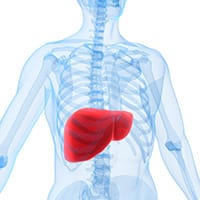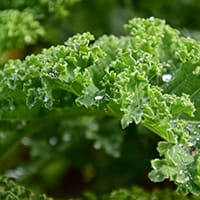
We are often inclined to do an annual ‘spring clean’ of our homes, but what about our bodies?
 Spring is a time when we move out of a period of conservation and into a more active time. It is the perfect time to give our body’s detoxification systems a boost with a gentle cleanse. Just as the birds, insects and animals come out of hibernation, so too does the human system shake off the cob webs in preparation for a busy summer period.
Spring is a time when we move out of a period of conservation and into a more active time. It is the perfect time to give our body’s detoxification systems a boost with a gentle cleanse. Just as the birds, insects and animals come out of hibernation, so too does the human system shake off the cob webs in preparation for a busy summer period.
The body has a fabulous, intelligent detoxification system already installed. The liver, kidneys and other organs of the digestive system spearhead the major detoxification processes. When working as they should, they effectively rid our bodies of toxins that could cause health problems if left unmanaged.
How does detoxification work?
 The liver is crucial in getting rid of toxins. First, it breaks down toxins and then packages them into forms that can be excreted by the digestive system or kidneys.
The liver is crucial in getting rid of toxins. First, it breaks down toxins and then packages them into forms that can be excreted by the digestive system or kidneys.
B vitamins, zinc, sulphur, amino acids and the anti-oxidant vitamins E and C are required by the liver to do its work properly. If you don’t get enough of these nutrients, the process of detoxification will be compromised.
The liver also synthesises and secretes bile which is used to carry the toxins to the intestines to be excreted. Bile is also important for emulsifying fats and fat-soluble vitamins (A, E, D) and improving their absorption.
The final step in detoxification is elimination. The kidneys and the bowels need plenty of water to flush toxins out of the body. In addition, adequate dietary fibre is required to excrete the products of detoxification in the faeces.
The Western diet is at odds with good detoxification
 Western diets are typically low on fresh organic produce, low in fibre and high in sugar and preservatives. As a result, our systems of detoxification are often short of the nutrients, water and fibre they need to operate effectively.
Western diets are typically low on fresh organic produce, low in fibre and high in sugar and preservatives. As a result, our systems of detoxification are often short of the nutrients, water and fibre they need to operate effectively.
When the detoxification system is not working adequately, toxins can accumulate and start causing health issues. Some symptoms of a sluggish detoxification system include:
- Low energy levels
- Bad breath
- Foul-smelling stools
- PMS or other issues related to hormonal imbalance
- Low immunity (more than two colds per year)
- Brain fog, or inability to think clearly
- Worsened hangovers
- Acne
Setting aside some time for a spring cleanse is a great way to support and enhance your natural detoxification systems.
A wholefood cleanse enhances detoxification.
There are hundreds of variations of cleanses and detoxes – some more extreme than others. Each practitioner is different, and my approach focuses on enhancing the body’s natural systems of detoxification.
The goals of a good spring cleanse should be to eliminate foods that increase the burden on the liver; remove or limit possible allergens; provide support for organs of detoxification; and improve digestion and bowel transit time.
How to Spring Cleanse:
 While some are as short as three days, 15-20 days is optimal, and a month is ideal. Each person should assess what is possible in their specific circumstances. A cleanse should never be stressful and can be accomplished by the following:
While some are as short as three days, 15-20 days is optimal, and a month is ideal. Each person should assess what is possible in their specific circumstances. A cleanse should never be stressful and can be accomplished by the following:
- Eating at least 6-8 portions of fresh organic vegetables and fruit daily – favouring vegetables. Vegetables provide the nutrients your liver needs to do its job. Vegetables from the brassica family such as broccoli, cauliflower, kale and cabbage are excellent as they stimulate the phases of liver detoxification. Smoothies are a great way to pile in plenty of nutrients while keeping in the plant fibre.
- Focus on eating plenty of fibre-rich foods to establish good digestive elimination. Oats, lentils, chickpeas, brown rice and quinoa are excellent sources of fibre and B vitamins. Legumes are also great source of protein.
- Drink 1.5-2 litres of filtered water daily. Decaffeinated teas such as fennel, ginger, nettle mint and liquorice count as part of this total and nourish the detoxification organs.
- Eat portions of raw food daily. These contain powerful enzymes that help you digest food more easily.
- Avoid caffeine, alcohol, smoking and common food allergens such as dairy and gluten. All of these can aggravate your digestive system and increase the toxic load on your liver.
Detoxing Responsibly
 For some people, the start of a detox can be a little uncomfortable. Withdrawal from caffeine can result in headaches and, as your body starts to release toxins, you may feel fatigued and have flu-like symptoms. This is normal. Although, should not last longer than 3-4 days.
For some people, the start of a detox can be a little uncomfortable. Withdrawal from caffeine can result in headaches and, as your body starts to release toxins, you may feel fatigued and have flu-like symptoms. This is normal. Although, should not last longer than 3-4 days.
Ideally, start tapering off your caffeine, alcohol and sugar a few days before you begin a detox in earnest. That way there is less of a shock to the system and you will be much more likely to see the whole programme through.
Adding nutritious whole foods won’t damage your health, but if you are on any medications or are pregnant, you should make your GP aware that you are changing your diet.
Spring is a time of renewal, rejuvenation and activity. Make it count!
By Registered Nutritional Therapist Claire Clerkin, for College of Naturopathic Medicine


